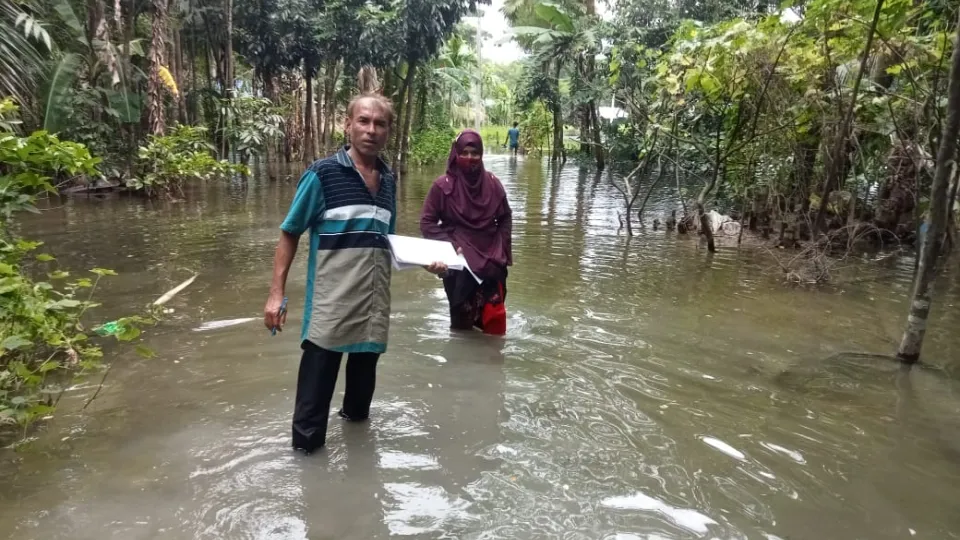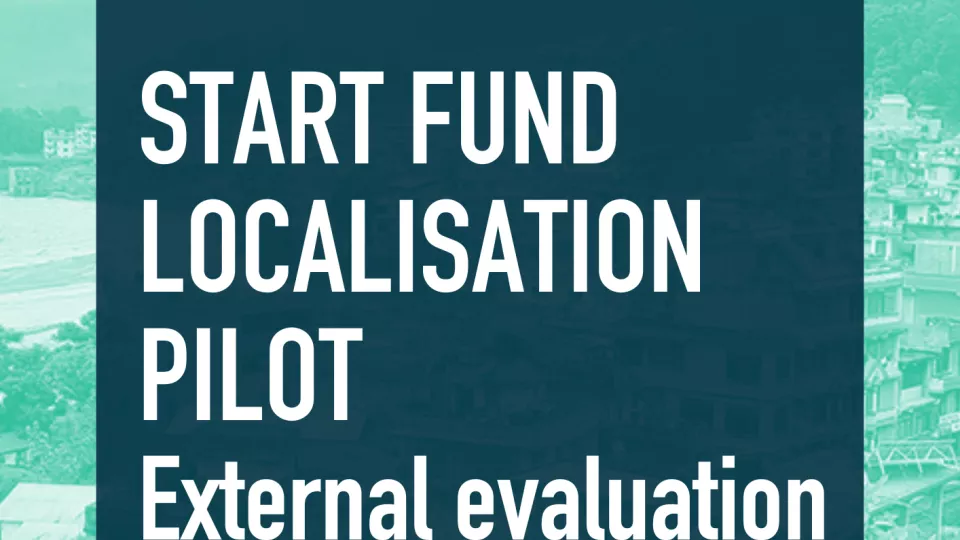
Cyclone Remal: Examining Risk Layering and Cost Effectiveness through Start Ready, Start Fund Anticipation, and Start Fund Response
This study highlights the effectiveness of early interventions over reactive disaster relief.

This study highlights the effectiveness of early interventions over reactive disaster relief.

This is an independent, external evaluation of the Start Fund’s ‘localisation pilot’ conducted in late 2022. The purpose of the evaluation is to assess the extent to which the global Start Fund is ready in terms of current and planned processes, practices and capacity, to develop into a more locally-led humanitarian model while maintaining its mandate to respond rapidly to the gaps and unmet needs of people in, or at-risk of crisis.
This report summarises the key achievements of National FOREWARN programmes in 2022.

Towards the end of 2021, we commissioned an external review of the Start Fund. This review's purpose was to assess the extent to which the global Start Fund is ready to develop into a more locally led model while maintaining its mandate to respond rapidly to the gaps and unmet needs of people in or at-risk of crises.

The Start Fund is the first multi-donor pooled humanitarian funding mechanism, managed exclusively by international and national non-governmental organisations (INGOs/NNGOs). As its membership has expanded, the frequency of alerts has risen, tools and systems have improved, governance has been restructured, and evidence and learning pro-cesses have been strengthened. In its sixth year of operation, by August 2020 the Start Fund had awarded over £71m and demand was seen to be at an all-time high. Past independent evaluations of the Start Fund and its performance have concluded that it is a successful and unique funding mechanism that has added significant value to, and has great potential to reform, the humanitarian financing system.

The Start Fund is the first multi-donor pooled humanitarian funding mechanism, managed exclusively by international and national non-governmental organisations (INGOs/NNGOs). As its membership has expanded, the frequency of alerts has risen, tools and systems have improved, governance has been restructured, and evidence and learning pro-cesses have been strengthened. In its sixth year of operation, by August 2020 the Start Fund had awarded over £71m and demand was seen to be at an all-time high. Past independent evaluations of the Start Fund and its performance have concluded that it is a successful and unique funding mechanism that has added significant value to, and has great potential to reform, the humanitarian financing system.

In 2016 the Start Network launched Crisis Anticipation within the Start Fund. This short brief documents the 10 key lessons learned and recommendation from the first 3 years of Crisis Anticipation at the Start Network.
The Start Fund provides rapid financing to underfunded small to medium scale crises, spikes in chronic humanitarian crises, and to act in anticipation of impending crises, filling a critical gap in humanitarian financing.

Now moving into its fifth year of operation, the Start Fund is the fastest collectively-owned funding mechanism in the world. It is a leading enabler of rapid, needs-driven humanitarian response for overlooked crises. Filling a critical gap in humanitarian financing, it pools funding from donors for immediate release for crises around the world. In its fourth year alone the Start Fund spent over £8.8 million responding to the unmet needs of 2,050,546 people across 44 crises in 31 countries. Find out more about the work of the Start Fund, including our performance, how we are meeting our commitments to the Grand Bargain, our Anticipation Window, and why we hold localisation at the heart of our work.
The Start Fund opened its Crisis Anticipation Window in November 2016. In this report we set out the changes we have made so far, identify what we’ve learned during its first year and explain the plan to normalise and embed anticipation across the Start Network.